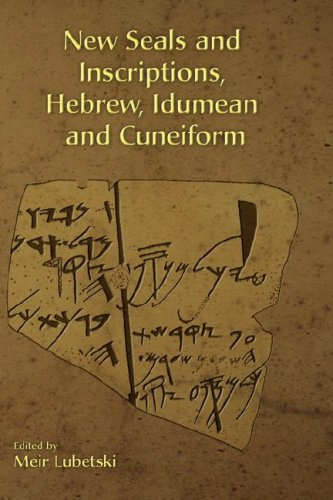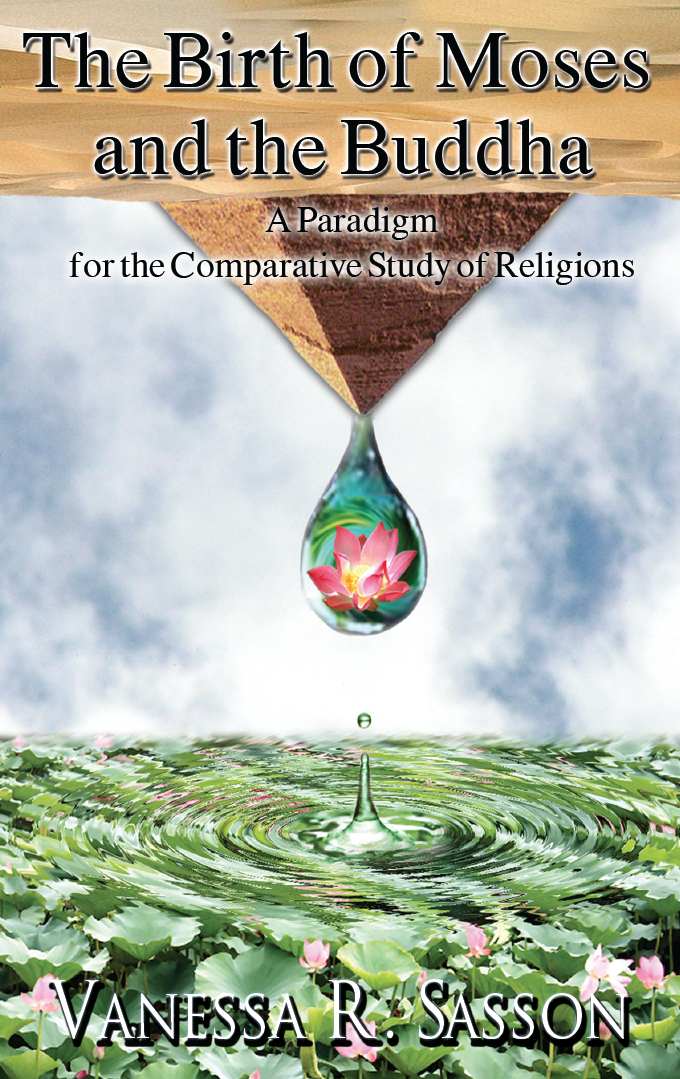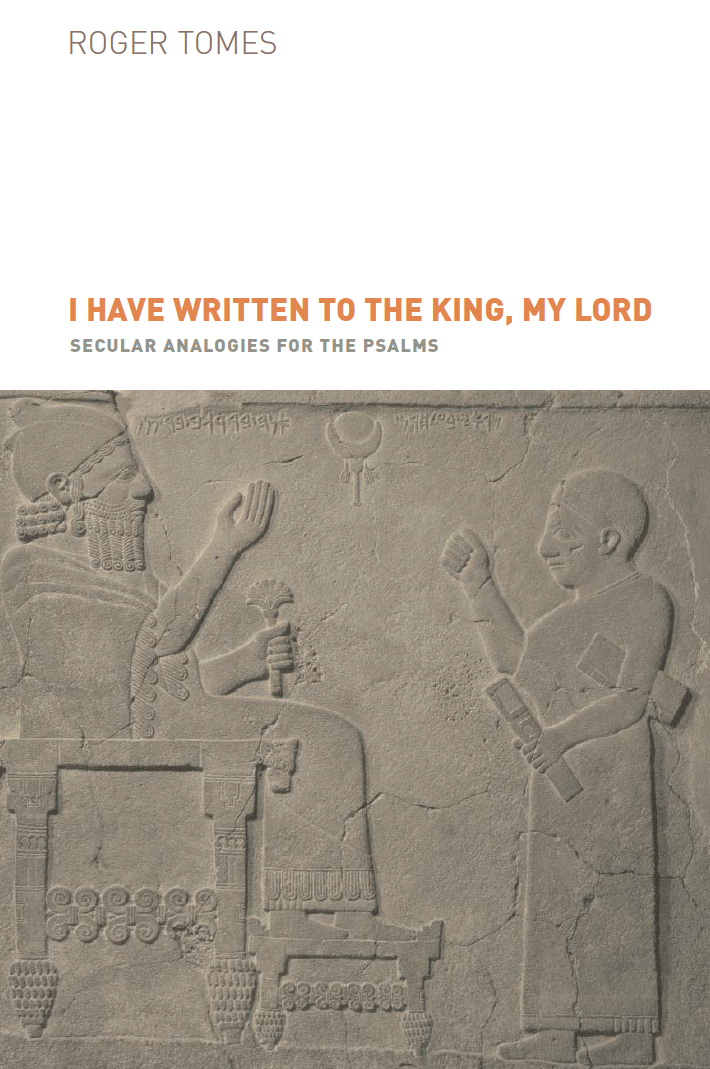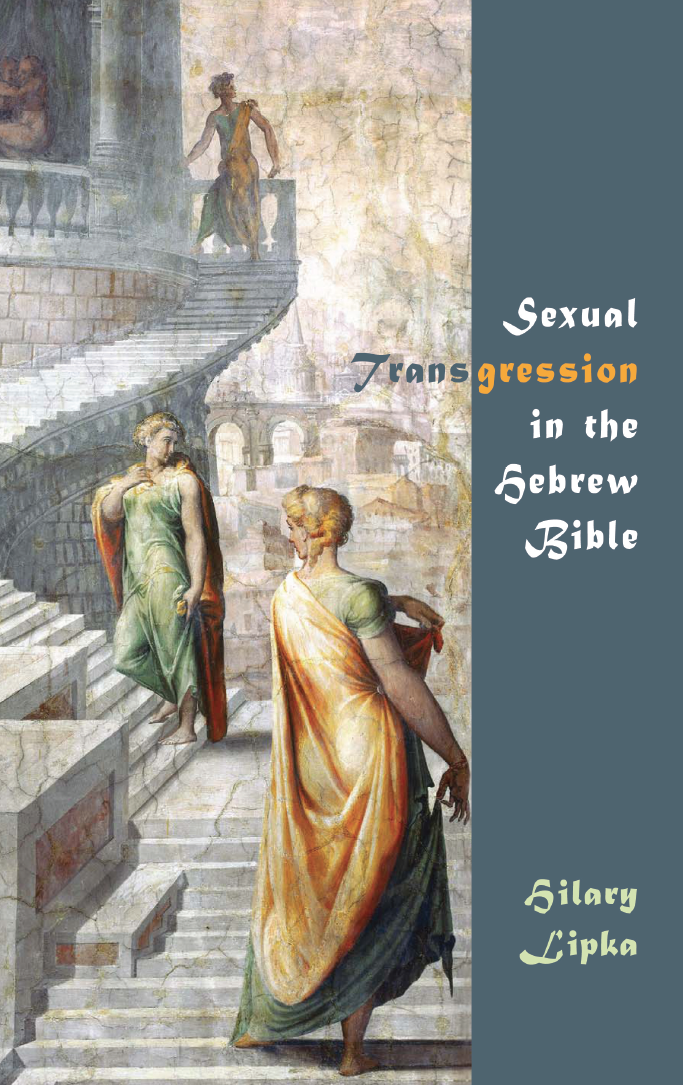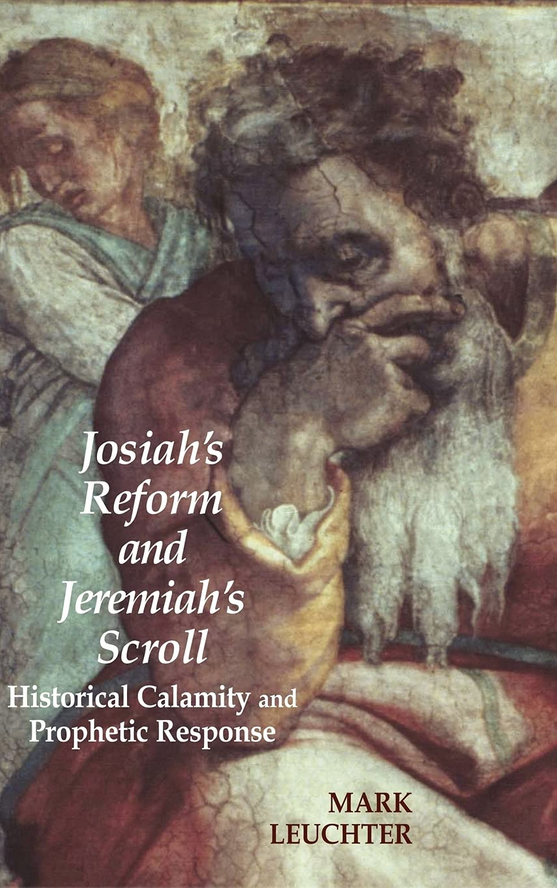New Seals and Inscriptions, Hebrew, Idumean and Cuneiform
Published: Sep 2007
£55.00
This collection of 16 papers is a significant addition to our textual evidence for the world of the Bible: it presents over 50 inscriptions, tablets and seals from the collections of Shlomo Moussaieff, in Hebrew, Idumean, and cuneiform. Most of these texts are being published here for the first time.
New Seals and Inscriptions, Hebrew, Idumean and Cuneiform
£55.00
This collection of 16 papers is a significant addition to our textual evidence for the world of the Bible: it presents over 50 inscriptions, tablets and seals from the collections of Shlomo Moussaieff, in Hebrew, Idumean, and cuneiform. Most of these texts are being published here for the first time.
The Birth of Moses and the Buddha: A Paradigm for the Comparative Study of Religions
Published: Aug 2007
£50.00
Responding to a recent upsurge of Jewish interest in Buddhism, Sasson undertakes the first serious academic effort to uncover the common ground between the founders of the two religions, Moses and the Buddha.
Because this is a study of traditions rather than a historical investigation, Sasson is able to synthesize various kinds of materials, from biblical and non-biblical, adn from early Pali and Sanskrit Buddhist sources. She notes the striking similarities between the life-patterns of the two leaders. Both were raised as princes and both eventually left their lavish upbringings only to discover something higher. Their mothers play prominent roles in the narratives of their births, while their fathers are often excluded from view. They were both born surrounded by light and embodying miraculous qualities.
But there are also some rather consequential differences, which allow these two colossal figures to maintain their uniqueness and significance. Moses was a man chosen for a particular mission by a higher power, a human being serving as the deity's tool. By contrast, the Buddha was a man whose mission was self-determined and actualized over time. Moses lived one life; the Buddha lived many. The Buddha became the symbol of human perfection; Moses was cherished by his tradition despite — or possibly because of — his personal failings. And although Moses is often presented as the founder of Israelite religion, the Buddha was simply following the blueprint outlined by the Buddhas before him.
The programme of this study goes further than to compare and contrast the two figures. Sasson argues that the comparative model she adopts can highlight doctrines and priorities of a religion that may otherwise remain hidden. In that way, the birth of Moses and the Buddha may serve as a paradigm for the comparative study of religions.
The Birth of Moses and the Buddha: A Paradigm for the Comparative Study of Religions
£50.00
Responding to a recent upsurge of Jewish interest in Buddhism, Sasson undertakes the first serious academic effort to uncover the common ground between the founders of the two religions, Moses and the Buddha.
Because this is a study of traditions rather than a historical investigation, Sasson is able to synthesize various kinds of materials, from biblical and non-biblical, adn from early Pali and Sanskrit Buddhist sources. She notes the striking similarities between the life-patterns of the two leaders. Both were raised as princes and both eventually left their lavish upbringings only to discover something higher. Their mothers play prominent roles in the narratives of their births, while their fathers are often excluded from view. They were both born surrounded by light and embodying miraculous qualities.
But there are also some rather consequential differences, which allow these two colossal figures to maintain their uniqueness and significance. Moses was a man chosen for a particular mission by a higher power, a human being serving as the deity's tool. By contrast, the Buddha was a man whose mission was self-determined and actualized over time. Moses lived one life; the Buddha lived many. The Buddha became the symbol of human perfection; Moses was cherished by his tradition despite — or possibly because of — his personal failings. And although Moses is often presented as the founder of Israelite religion, the Buddha was simply following the blueprint outlined by the Buddhas before him.
The programme of this study goes further than to compare and contrast the two figures. Sasson argues that the comparative model she adopts can highlight doctrines and priorities of a religion that may otherwise remain hidden. In that way, the birth of Moses and the Buddha may serve as a paradigm for the comparative study of religions.
Protest Against God: The Eclipse of a Biblical Tradition
Published: Jan 2007
£15.00 – £50.00
The Hebrew Bible contains many examples of protest or complaint against God. There are classic cases in the psalms of individual lament, but we find the same attitude in community complaint psalms, in the prophetic challenges to God, and in the Book of Job.
And yet, after the exile, the complaint tradition was largely suppressed or marginalized. In this imaginative book, Morrow asks the unheard of question, Why? A shift in the religious imagination of early Judaism had taken place, he argues, spearheaded by the psychology of trauma and by international politics. A magnification of divine transcendence downgraded the intercessory role of the prophet, controlled the raw pain of exile (Lamentations, Second Isaiah), and led to intransigent refusal of the logic of lament (the friends and Yahweh in Job). The theology of complaint was eventually overshadowed by the piety of penitence and praise (the Dead Sea Scrolls).
Modern readers of the Hebrew Bible are not obliged to assent to the loss of lament, nevertheless. Ours is an age when the potency of the biblical complaints against God is being newly appropriated. Although the transcendental imagination of Western culture itself is moving into eclipse, a heightened individual consciousness has emerged. There may still be life, therefore, in the ancient prayer pattern of arguing with God, which assumes that worshippers have rights with God as well as duties, that the Creator has obligations to the creation as well as prerogatives.
This stylish intellectual history will be welcomed for its scope, its panache and its theological engagement. Awarded the 2007 R.B.Y. Scott Book Award for an outstanding book in the areas of Hebrew Bible and/or the Ancient Near East written by a member of the Canadian Society of Biblical Studies.
Protest Against God: The Eclipse of a Biblical Tradition
£15.00 – £50.00
The Hebrew Bible contains many examples of protest or complaint against God. There are classic cases in the psalms of individual lament, but we find the same attitude in community complaint psalms, in the prophetic challenges to God, and in the Book of Job.
And yet, after the exile, the complaint tradition was largely suppressed or marginalized. In this imaginative book, Morrow asks the unheard of question, Why? A shift in the religious imagination of early Judaism had taken place, he argues, spearheaded by the psychology of trauma and by international politics. A magnification of divine transcendence downgraded the intercessory role of the prophet, controlled the raw pain of exile (Lamentations, Second Isaiah), and led to intransigent refusal of the logic of lament (the friends and Yahweh in Job). The theology of complaint was eventually overshadowed by the piety of penitence and praise (the Dead Sea Scrolls).
Modern readers of the Hebrew Bible are not obliged to assent to the loss of lament, nevertheless. Ours is an age when the potency of the biblical complaints against God is being newly appropriated. Although the transcendental imagination of Western culture itself is moving into eclipse, a heightened individual consciousness has emerged. There may still be life, therefore, in the ancient prayer pattern of arguing with God, which assumes that worshippers have rights with God as well as duties, that the Creator has obligations to the creation as well as prerogatives.
This stylish intellectual history will be welcomed for its scope, its panache and its theological engagement. Awarded the 2007 R.B.Y. Scott Book Award for an outstanding book in the areas of Hebrew Bible and/or the Ancient Near East written by a member of the Canadian Society of Biblical Studies.
Voyages in Uncharted Waters: Essays on the Theory and Practice of Biblical Interpretation in Honor of David Jobling
Published: Oct 2006
£50.00
This volume honours the work of David Jobling, the distinguished Professor of Old Testament Language and Literature at St Andrew's College, Saskatoon, Canada. Jobling has been noted for his adventurous forays into the theory and practice of biblical interpretation, especially of the Hebrew Bible, and for his interdisciplinary bridge-building. The volume is divided into three sections corresponding to three of Jobling's principal interests, each section being prefaced with an introduction to his work in that area by the editors.
Section 1 is on Post-Structuralism, with contributions by Gary Phillips, George Aichele, Francis Landy, Robert Culley and Matthew Mitchell. In Section 2, on Ideological Criticism, the authors are Roland Boer, David Gunn, Volker Greifenhagen and Tina Pippin. Section 3, on Global Readings, contains papers by Gerald West, Jione Havea, Ed Conrad and Norman Habel.
The Festschrift concludes with personal tributes by Christopher Lind and Norman Gottwald.
Voyages in Uncharted Waters: Essays on the Theory and Practice of Biblical Interpretation in Honor of David Jobling
£50.00
This volume honours the work of David Jobling, the distinguished Professor of Old Testament Language and Literature at St Andrew's College, Saskatoon, Canada. Jobling has been noted for his adventurous forays into the theory and practice of biblical interpretation, especially of the Hebrew Bible, and for his interdisciplinary bridge-building. The volume is divided into three sections corresponding to three of Jobling's principal interests, each section being prefaced with an introduction to his work in that area by the editors.
Section 1 is on Post-Structuralism, with contributions by Gary Phillips, George Aichele, Francis Landy, Robert Culley and Matthew Mitchell. In Section 2, on Ideological Criticism, the authors are Roland Boer, David Gunn, Volker Greifenhagen and Tina Pippin. Section 3, on Global Readings, contains papers by Gerald West, Jione Havea, Ed Conrad and Norman Habel.
The Festschrift concludes with personal tributes by Christopher Lind and Norman Gottwald.
The Michal Affair: From Zimri-Lim to the Rabbis
Published: Jun 2006
£15.95 – £50.00
This fresh approach to the story of Michal, daughter of Saul and wife of David, juxtaposes three quite different interpretative methods: narratological, historical, and history of traditions.
In his first chapter Bodi offers a subtle political reading of the Michal story, bringing to the fore the power-struggle between Saul and David that forms its main intrigue. Michal's personal tragedy foreshadows that of the Israelite monarchy and prefigures its end. It is a unique phenomenon in ancient Near Eastern literature that the story of a woman should serve as a means of criticizing the abuses of the monarchy and deconstructing the royal ideology.
The second chapter compares the daughters of Saul and the daughters of Zimri-Lim. This eighteenth-century BCE tribal king of Mari offered his two daughters Kirum and Shimatum to the same vassal in order to be able to spy on him. Saul seems to have done something similar with his daughters Merab and Michal, both offered to David. The unhappy marriage of Kirum ended in divorce. Although the announcement of the divorce was made by her husband in a public ceremony, it was prompted by the royal princess —the first example of a divorce initiated by a woman in ancient Near Eastern texts.
The third chapter explores a rich variety of rabbinic interpretations of key moments in the Michal story. Important and often little known observations are drawn from both the Talmuds and from midrashic works such as Abrabanel and anthologies like Midrash Rabbah, Yalqut Shimoni, Meam Loez and Malbim, together with the comments by Rashi and Qimhi.
Both the narratological investigation and the rabbinic interpretations point to David's guilt during his dance in front of the ark. The rabbis indeed attributed the exile of the nation to David's misdeeds. A careful reading of the biblical texts dealing with the figure of David in his relationship with his first wife Michal reaches the same conclusion: He is not exactly the man he pretends to be.
The Michal Affair: From Zimri-Lim to the Rabbis
£15.95 – £50.00
This fresh approach to the story of Michal, daughter of Saul and wife of David, juxtaposes three quite different interpretative methods: narratological, historical, and history of traditions.
In his first chapter Bodi offers a subtle political reading of the Michal story, bringing to the fore the power-struggle between Saul and David that forms its main intrigue. Michal's personal tragedy foreshadows that of the Israelite monarchy and prefigures its end. It is a unique phenomenon in ancient Near Eastern literature that the story of a woman should serve as a means of criticizing the abuses of the monarchy and deconstructing the royal ideology.
The second chapter compares the daughters of Saul and the daughters of Zimri-Lim. This eighteenth-century BCE tribal king of Mari offered his two daughters Kirum and Shimatum to the same vassal in order to be able to spy on him. Saul seems to have done something similar with his daughters Merab and Michal, both offered to David. The unhappy marriage of Kirum ended in divorce. Although the announcement of the divorce was made by her husband in a public ceremony, it was prompted by the royal princess —the first example of a divorce initiated by a woman in ancient Near Eastern texts.
The third chapter explores a rich variety of rabbinic interpretations of key moments in the Michal story. Important and often little known observations are drawn from both the Talmuds and from midrashic works such as Abrabanel and anthologies like Midrash Rabbah, Yalqut Shimoni, Meam Loez and Malbim, together with the comments by Rashi and Qimhi.
Both the narratological investigation and the rabbinic interpretations point to David's guilt during his dance in front of the ark. The rabbis indeed attributed the exile of the nation to David's misdeeds. A careful reading of the biblical texts dealing with the figure of David in his relationship with his first wife Michal reaches the same conclusion: He is not exactly the man he pretends to be.
I Have Written to the King, My Lord’: Secular Analogies for the Psalms
Published: Jun 2006
£12.95 – £35.00
The psalms in the Hebrew Bible have often been compared with the religious texts of Mesopotamia, Egypt and Canaan. Roger Tomes shows, in this incisive monograph, how the letters of the ancient Near East, from Mari, Amarna, Ugarit, Nimrud and Nineveh, are an equally rewarding analogue.
In them we find suppliants, caught in crisis situations, appealing to their rulers; they use the same arguments to persuade them to act as the psalmists in their appeals to God: protestations of innocence, confession of faults, promises of loyalty, descriptions of plight, appeal to the other's own interests, direct reproaches and quotation of the reproaches of enemies, and expressions of dependence. These are parallels that have much to teach us about the social position of the psalmists and their relationship to the cult.
I Have Written to the King, My Lord’: Secular Analogies for the Psalms
£12.95 – £35.00
The psalms in the Hebrew Bible have often been compared with the religious texts of Mesopotamia, Egypt and Canaan. Roger Tomes shows, in this incisive monograph, how the letters of the ancient Near East, from Mari, Amarna, Ugarit, Nimrud and Nineveh, are an equally rewarding analogue.
In them we find suppliants, caught in crisis situations, appealing to their rulers; they use the same arguments to persuade them to act as the psalmists in their appeals to God: protestations of innocence, confession of faults, promises of loyalty, descriptions of plight, appeal to the other's own interests, direct reproaches and quotation of the reproaches of enemies, and expressions of dependence. These are parallels that have much to teach us about the social position of the psalmists and their relationship to the cult.
Sexual Transgression in the Hebrew Bible
Published: Mar 2006
£60.00
The sex laws of the Hebrew Bible are well known, if not notorious. From them many have concluded that in ancient Israel adultery was a capital crime, that there was no conception of rape, that brides had to be virgins, and that women had no autonomy whatsoever. But was that the reality? Not if we broaden our horizon beyond the laws, argues Lipka, who focusses here on sexual transgression, that is, the trespass against sexual boundaries.
She finds three aspects of sexual transgression: it may be transgression against religious boundaries (sexual acts violating divine law), against communal boundaries (sexual acts violating the rights of another member of the community), or against personal boundaries (sexual acts imposed by force and/or violence). Transgressive sex is complicated.
But some conclusions are possible. (1) Though adultery was universally disapproved of, there was a wide variety of opinions on who was considered guilty, who was considered the offended party, who was punished, what the punishment was, and who should execute it. (2) There was indeed a conception of rape, with an understanding of its devastating emotional and psychological consequences for the victim. (3) Though virginity in brides was the norm, and young women were under a great deal of pressure to preserve their virginity, it was unrealistic for all men in ancient Israel to expect their wives to be virgins. (4) Women did not enjoy legal autonomy over their sexuality, yet they were not completely powerless; they had some degree of personal sexual autonomy, and some took the liberty of doing with their bodies as they pleased.
Sexual Transgression in the Hebrew Bible
£60.00
The sex laws of the Hebrew Bible are well known, if not notorious. From them many have concluded that in ancient Israel adultery was a capital crime, that there was no conception of rape, that brides had to be virgins, and that women had no autonomy whatsoever. But was that the reality? Not if we broaden our horizon beyond the laws, argues Lipka, who focusses here on sexual transgression, that is, the trespass against sexual boundaries.
She finds three aspects of sexual transgression: it may be transgression against religious boundaries (sexual acts violating divine law), against communal boundaries (sexual acts violating the rights of another member of the community), or against personal boundaries (sexual acts imposed by force and/or violence). Transgressive sex is complicated.
But some conclusions are possible. (1) Though adultery was universally disapproved of, there was a wide variety of opinions on who was considered guilty, who was considered the offended party, who was punished, what the punishment was, and who should execute it. (2) There was indeed a conception of rape, with an understanding of its devastating emotional and psychological consequences for the victim. (3) Though virginity in brides was the norm, and young women were under a great deal of pressure to preserve their virginity, it was unrealistic for all men in ancient Israel to expect their wives to be virgins. (4) Women did not enjoy legal autonomy over their sexuality, yet they were not completely powerless; they had some degree of personal sexual autonomy, and some took the liberty of doing with their bodies as they pleased.
Josiah’s Reform and Jeremiah’s Scroll: Historical Calamity and Prophetic Response
Published: Jan 2006
£50.00
This exciting new study of the prophet Jeremiah attributes to him a pivotal significance in the historical period of Josiah's reign.
He was, so Leuchter argues, one of the central agents of Josiah's propaganda machine and was intimately involved with the king's political agenda. Jeremiah, himself originally a member of the scribal school that composed the Deuteronomistic literature, encouraged the Shilonites of Anathoth to become active in Josiah's programme in the North following the waning of Assyrian power. Dismayed by the Shilonites' rejection of him and Josiah, and by the king's death at Megiddo, Jeremiah came to a radically new understanding of the divine purpose, encapsulated in the famous Temple sermon of Jeremiah 7 and evidenced in the prophet's debates with the political establishment in Jerusalem in the years that followed.
In his thoroughgoing historical reconstruction, Leuchter outlines a very specific sequence of events that took their rise from the Shilonite rejection of Deuteronomic policy, and on that basis carefully demarcates the texts that would have been included in Jeremiah's first scroll (the Urrolle ). Leuchter's monograph will make an important contribution to the study of the history and the literature of the late seventh century BCE.
Josiah’s Reform and Jeremiah’s Scroll: Historical Calamity and Prophetic Response
£50.00
This exciting new study of the prophet Jeremiah attributes to him a pivotal significance in the historical period of Josiah's reign.
He was, so Leuchter argues, one of the central agents of Josiah's propaganda machine and was intimately involved with the king's political agenda. Jeremiah, himself originally a member of the scribal school that composed the Deuteronomistic literature, encouraged the Shilonites of Anathoth to become active in Josiah's programme in the North following the waning of Assyrian power. Dismayed by the Shilonites' rejection of him and Josiah, and by the king's death at Megiddo, Jeremiah came to a radically new understanding of the divine purpose, encapsulated in the famous Temple sermon of Jeremiah 7 and evidenced in the prophet's debates with the political establishment in Jerusalem in the years that followed.
In his thoroughgoing historical reconstruction, Leuchter outlines a very specific sequence of events that took their rise from the Shilonite rejection of Deuteronomic policy, and on that basis carefully demarcates the texts that would have been included in Jeremiah's first scroll (the Urrolle ). Leuchter's monograph will make an important contribution to the study of the history and the literature of the late seventh century BCE.

